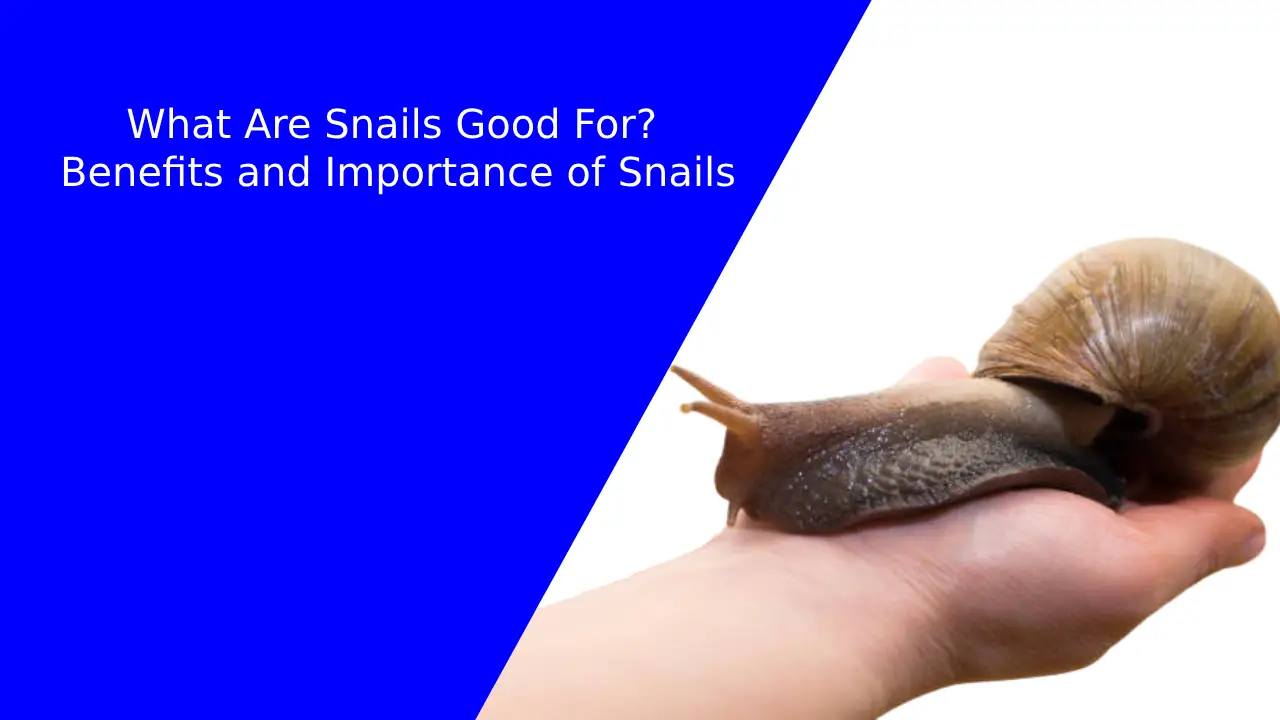Snails are one of those creatures that when you see, you will be glad that nature has bless the earth, do the may not look like more but trust me the have lots of ude in this world.
We are going to be discuse many benefits snail have in our ecosystem and the contributions the animal has done in the world today.
When we think of snails, we often picture slow-moving creatures leaving behind a trail of slime. However, these seemingly unassuming creatures play a vital role in the natural world and offer numerous benefits. From their ecological functions to their potential uses in various industries, snails have garnered attention for their unique contributions. This article will delve into the intriguing world of snails and uncover why they are truly remarkable.
The Importance of Snails in Nature
Despite their small size, Snails hold significant importance in nature’s intricate balance. Let’s explore their key ecological functions and their impact on the environment.
Ecological Functions of Snails
Snails serve as essential components of ecosystems by performing various ecological functions:
1. Natural Recyclers:
-
- Snails play a crucial role in breaking down organic matter and accelerating decomposition, contributing to nutrient recycling in the ecosystem.
- Their feeding habits help recycle nutrients into the soil, promoting healthy plant growth and maintaining nutrient balance.
2. Soil Health:
-
- Snails enhance soil structure, water infiltration, and nutrient availability by aerating the soil through burrowing activities.
- They contribute to soil fertility by decomposing organic materials and enriching them with calcium, essential for plant growth.
Snails and Their Benefits to the Environment
Snails are not just passive participants in the ecosystem; they provide valuable services that benefit the environment. Let’s explore their contributions to the food chain, pest control, and biodiversity conservation.
Snails in the Food Chain
1. Nutrient Source:
-
- Snails are a nutritious food source for various animals, including birds, frogs, and certain fish species.
- They made the provision for a very important link to our food chain, transferring energy and nutrients to higher trophic levels.
2. Pest Control Agents:
-
- Snails feed on decaying plant matter, fungi, and algae, helping to control their populations.
- Some species of snails are predators and consume small insects and worms, contributing to natural pest control in gardens and agricultural settings.
Snails and Biodiversity Conservation
Bioindicators of Environmental Health:
-
- Snails are sensitive to habitat changes, making them excellent bioindicators of environmental quality.
- Their presence and abundance can reflect the overall health of ecosystems, including water quality and pollution levels.
Snails and Their Potential Uses
Apart from their ecological significance, snails have practical applications in various industries. Let’s explore their potential uses in gardening, skin care, and education.
Snails in Gardening and Agriculture
1.Nutrient Cycling:
- Snails contribute to nutrient cycling by breaking down organic matter and recycling nutrients in the soil.
- Their presence can benefit composting processes and promote healthy plant growth.
2. Soil Health and Aeration:
- Snails burrow through the soil, improving its structure and allowing better water penetration and root development.
- Their activities enhance soil fertility, which can positively impact agricultural yields.
Snail-Based Products for Skincare and Cosmetics
1. Skin Regeneration:
- Snail slime contains natural compounds, such as hyaluronic acid and glycolic acid, known for their moisturizing and skin-regenerating properties.
- Many skincare products incorporate snail extracts to promote skin health and reduce signs of ageing.
2. Cosmetic Applications:
- Snail mucin is used in cosmetics to improve texture, enhance elasticity, and provide a smooth appearance to the skin.
- These products have gained popularity for their potential benefits in reducing acne scars and promoting skin rejuvenation.
Snails as Educational Pets
Fascinating Classroom Companions:
- Snails can be captivating educational pets, allowing children to learn about nature and responsibility.
- Their low maintenance requirements make them ideal for classrooms and homes, allowing for hands-on learning experiences.
Conclusion
As we’ve discovered, snails are far more than just slow-moving creatures leaving behind a trail of slime. They play a vital role in the ecosystem as natural recyclers, contributing to soil health and nutrient cycling. Snails also benefit the environment by participating in the food chain, acting as pest control agents, and serving as bioindicators of environmental health. Furthermore, snails find practical applications in gardening, skin care, and education. When you carefully understand the importance and potential of snails, we can truly appreciate their remarkable contributions to our world.

